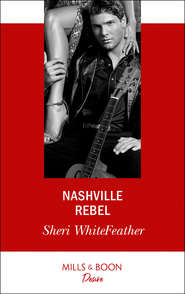По всем вопросам обращайтесь на: info@litportal.ru
(©) 2003-2024.
✖
The Ashtons: Walker, Ford & Mercedes: Betrayed Birthright / Mistaken for a Mistress / Condition of Marriage
Автор
Год написания книги
2019
Настройки чтения
Размер шрифта
Высота строк
Поля
Although a group of older kids played in the yard, he sensed she was the upcoming birthday girl.
“How many kids does Michele have?” he asked Tamra, as she parked her truck in a narrow driveway.
“Just one. The rest are her nieces and nephews.”
Walker watched them run through the grass, tagging each other with laughter and adolescent squeals. “Do they all live here?”
She nodded. “Along with their parents. There’s a shortage of houses on the reservation. They don’t have anywhere else to go.”
He thought about his trilevel condo, the sprawling rooms with French doors and leaded-glass windows. The redwood deck and private hot tub. The enormous kitchen he rarely used.
He ran his hand through his hair, smoothing it away from his face, trying to shed the sudden guilt of having money. “That’s a lot of people in one house.”
“It’s a common situation.”
“How common?”
“The Tribal Housing Authority is trying to provide homes, but they have a waiting list of at least twelve hundred people. It’s been like that for a long time.” She turned to look at him. “When I was growing up, before Mary took us in, my mom and I drifted, trying to find a permanent place to stay. In the summer we camped out, but in the winter we had to find some sort of roof over our heads.”
He pictured her as a little girl, living like a half-starved gypsy. “Why are these houses so close together and my mom’s by itself?”
“Mary lives on her family’s land allotment, which is what most families did in the old days. They had log cabins, with gardens and animals.” She sighed, her voice fading into the stillness of her truck. “But as time passed, it became increasingly difficult for people to remain on their land allotments. They couldn’t afford to improve their homes, to stay in the country with no running water or electricity. And some families lost their land altogether, so they had to move into government projects.”
“Like this?”
She nodded. “It’s called cluster housing. It was instituted in the 1960s to provide modern conveniences. But the lack of economic infrastructure created reservation ghettos.” Tamra reached for her purse. “Cluster housing is only a portion of the problem. There are families who still don’t have electricity or running water. People staying in abandoned shacks or old trailers. Or camping out or living in their cars, the way my mom and I did.”
He couldn’t think of an appropriate response. He’d witnessed the poverty, seen signs of it all over the reservation, but until now he hadn’t let it touch him.
They exited the vehicle, and Tamra called out to the older kids. They grinned and waved at her. Walker wondered why they seemed so happy, so lighthearted and free. He could barely breathe.
The little girl on the steps grinned, too. She wore a pink top, denim shorts and a couple of minor scrapes on her knees. Brownish-black hair fell in a single braid, neatly plaited and shining in the July sun. Her feet, dusted with soil from the earth, were devoid of shoes.
When Tamra sat next to her, the child wiggled with familiarity. The dog got excited, too, slapping his tail against the splintered wood. Was the mutt a stray? A hungry soul Michele’s abundant family had taken pity on?
Walker moved closer and crouched down. Tamra told him the girl’s name was Maya. A bit shy, she banged her knobby knees together, ducked her head and gave him a sweet hello.
He wanted to scoop her up and take her home, spoil her with clothes and toys and fancy ribbons for her hair.
But at this point he wanted to take Tamra home, as well. He envisioned spoiling her, too, making up for her past, for the hardship she’d endured.
As she turned to look at him, he considered kissing her. Just a soft kiss, he thought. Something that wouldn’t alarm the child.
The front door flew open, and Walker’s heart jack-hammered its way to his throat. Romancing Tamra was a crazy notion. They’d already agreed they weren’t going to sleep together.
A young, full-figured woman came out of the house and greeted Tamra. Like most of the people on the rez, she had distinct sound to her voice—a flat tone, an accent Walker was still getting used to.
“Why are you sitting on the stoop?” she asked. “Why didn’t you come in?”
“We wanted to visit with Maya first,” Tamra told her, rising so they could hug. A second later she introduced Walker.
But the other woman, the infamous Michele, had already taken a keen interest in him. He shook her hand, and she flashed a smile that broadened her moon-shaped face.
“Where did Tamra find you?” She tossed a glance at her friend. “You show up with this yummy iyeska and leave me in the dark?”
Yummy iyeska?
It was better than being a stupid one, Walker supposed. But since that Lakota word still eluded him, he wasn’t sure how to react.
Tamra didn’t react, either. “He’s Mary’s son.”
“No shi—” Michele started to cuss, then caught herself. Her little girl was watching the adults like a fledging hawk.
Dark eyes. Rapt attention.
“So you’re the boy who was stolen by that mean wasicu,” Michele said to Walker.
He tried not to frown, to let his emotions show. Wasicu. White man, he thought. That was easy enough to translate. “Uncle Spencer raised my sister and me.”
Michele stuffed her hands into the pockets of threadbare jeans. “Well, it’s good to have you here.”
“Thanks.” He glanced at the kids playing in the grass, then at Maya, who still sat on the steps with the big mangy dog. “I live in San Francisco. And I’ll be going home in a few weeks.”
“Too bad.” Michele bumped Tamra’s shoulder. “Ennit, friend?”
Tamra nodded, then made eye contact with Walker. But he knew she wasn’t challenging him. It was a look of confusion, of an attraction that was sure to go awry.
Michele guided Walker and Tamra into the house, looping her arms through theirs. Maya popped up and followed them. In no time the other kids came inside, too, joining their parents, who gathered around a TV set with snowy reception.
Two of the older women bounded into the kitchen and began preparing a snack of some kind. Walker hadn’t expected them to cook for him. With all the mouths they had to feed, he felt awkward about being fussed over. But he appeared to be an honored guest.
Mary Little Dove’s son.
Maya warmed up to him, sitting beside him in a tired old chair. He moved over to accommodate her, and the lopsided cushion sagged under his weight, making him even more aware of his run-down surroundings. The faded brown carpet was worn to the bone, and sleeping mats were stacked in every corner.
He glanced across the crowded room and noticed the exchange of a twenty-dollar bill going from Tamra to Michele. The birthday loan. Walker tipped bellmen at hotels more than that.
He thought about the stocks Spencer had willed to him. Was it blood money? Payment in full? Or was he just lucky that his uncle had given a damn about him?
The Ashton patriarch. The mean wasicu.
The snack was a platter of fry bread, a staple among most Indian tribes, accompanied by bowls of wojapi, a Lakota pudding made with blueberries, water, sugar and flour.
Following young Maya’s lead, Walker dipped a piece of fry bread into the wojapi and realized he was surrounded by people who seemed genuinely interested in him. Still seated in the sagging chair, with Maya by his side, he talked and laughed with Tamra’s friends.
And for a few surprisingly stress-free hours, he actually enjoyed being in Pine Ridge.
The sun had begun to set, disappearing behind the hills, painting the sky in majestic colors.











